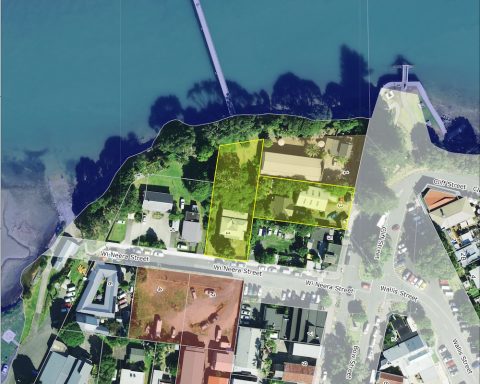As part of its tax gathering activities, Inland Revenue has massive powers under the Tax Administration Act 1994 including powers to search and seize, obtain your personal and business information from third parties (such as Banks) without your knowledge and/or consent, and issue deduction notices against your employer (wages/salary), WINZ benefit or deduct amounts directly from your bank account.
At Gina Jansen Lawyers, we have been acting for taxpayers since 2007 ensuring taxpayers’ rights are recognised and helping to resolve very scary tax issues for our clients. We have witnessed the brutal effects Inland Revenue can wreak on a taxpayer’s life when taxes and other debts, including child support and student loans, don’t get paid.
What powers does Inland Revenue have to take money from my account?
Under section 157 of the Tax Administration Act 1994, the Commissioner has the power to issue a deduction notice. These can be placed against: employers, banks, business debtors, house sales (lawyers trust accounts) and anyone Inland Revenue determines owes you money or where you have placed money. They can ask for the deduction to be up to 100% of the funds held. There is substantial caselaw where these have been challenged in the Courts.
How does IRD know about my house sale or that I have money in the Bank?
Usually done behind the scenes and without your knowledge, Inland Revenue can issue a section 17 notice on anyone to supply Inland Revenue with both personal and business information about you. They do not need your permission, nor is this a breach of your privacy under the Privacy Act. Typically, Inland Revenue starts this process by asking your Bank for copies of your bank statements so they can review all of your accounts and the transactions to ascertain if, and where, you hold or receive money including any payments you may receive regularly through your business i.e. from a debtor of your business. After that, Inland Revenue may then section 17 the debtor for more information about the contract it has with you, to determine how often, and how much you receive before issuing a section 157 deduction notice to divert the payments away from you, or your business, to Inland Revenue to apply against your unpaid taxes. Inland Revenue cannot however overdraw a bank account or exceed any credit balance available.
Isn’t this illegal?
The short answer is no. Inland Revenue, as the agency appointed by the government to collect taxes, has massive and wide-ranging powers under the law to do their job. As everyone knows, taxes need to be collected to pay for New Zealand’s costs, such as health, education, roading. Deduction notices can be issued for the non-payment of GST, income tax, PAYE, penalties and interest, child support and student loans i.e. mostly any tax or debt managed by Inland Revenue. What’s worse is that under sections 4 and 6 of the Criminal Proceeds (Recovery) Act 2009 (CPRA), a perceived criminal activity “…engaged in by a person that if proceeded against as a criminal offence would amount to offending punishable by a maximum term of 5 years or more”, such as “tax evasion” under section 143B of the Tax Administration Act (and a multitude of other tax acts under the Act), allows Inland Revenue to restrain or seize assets without the need for a conviction. The CPRA is often used by the Police to seize assets from criminals, but the Act also allows Inland Revenue to sidestep using a section 157 deduction notice for tax in default, and aim for assets potentially purchased by a taxpayer from the proceeds gained by not paying taxes (such as houses, cars, boats, chattels, business assets), and to sidestep firstly gaining a criminal conviction in the Courts against a taxpayer and/or their business. This can come as a real shock to taxpayers when Inland Revenue sets its sight on you.
I’ve just found out I owe IRD taxes. What should I do?
Sometimes, and legitimately, taxpayers get behind with the payment of taxes. Our law firm are specialist tax lawyers who have years of experience advocating for, and negotiating with Inland Revenue on behalf of clients to get resolution. While we highly recommend that taxpayers don’t allow the problem to get to the scary stage, we will strenuously negotiate so Inland Revenue is not tempted to use its massive powers to search, seize and deduct money without your consent. We also regularly appear in the Courts once legal proceedings are served: whether that is for criminal action (for example the non-payment of GST and PAYE), or bankruptcy and liquidation action against insolvent taxpayers in the High Court and debt collection in the District Court.
We know it’s scary dealing with Inland Revenue. So, if you have more questions, connect with us on Insta, Facebook or by phone or via our website www.ginajansen.co.nz
WITH GINA JANSEN LAWYERS











